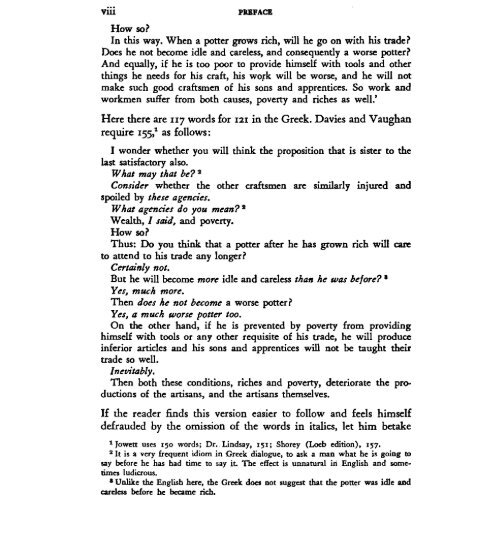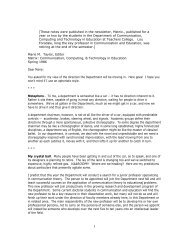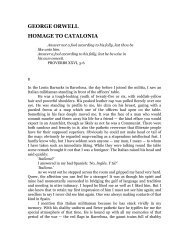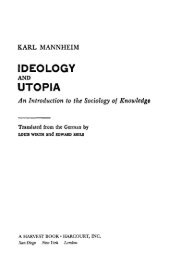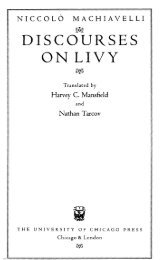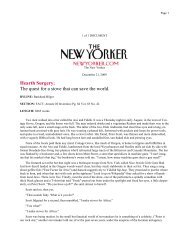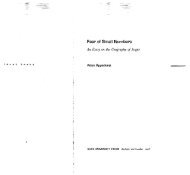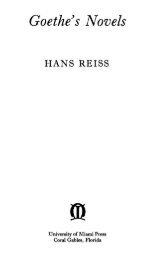THE REPUBLIC OF PLATO - Studyplace
THE REPUBLIC OF PLATO - Studyplace
THE REPUBLIC OF PLATO - Studyplace
Create successful ePaper yourself
Turn your PDF publications into a flip-book with our unique Google optimized e-Paper software.
viii<br />
PUPACE<br />
How so<br />
In this way. When a potter grows rich, will he go on with his trade<br />
Does he not become idle and careless, and consequently a worse potter<br />
And equally, if he is too poor to provide himself with tools and other<br />
things he needs for his craft, his w<strong>OF</strong>k will be worse, and he will not<br />
make such good craftsmen of his sons and apprentices. So work and<br />
workmen suffer from both causes, poverty and riches as well.'<br />
Here there are 117 words for 121 in the Greek. Davies and Vaughan<br />
require 155,1 as follows:<br />
I wonder whether you will think the proposition that is sister to the<br />
last satisfactory also.<br />
What may that be 2<br />
Consider whether the other craftsmen are similarly injured and<br />
spoiled by these agencies.<br />
What agencies do you mean 2<br />
Wealth, I said, and poverty.<br />
How so<br />
Thus: Do you think that a potter after he has grown rich will care<br />
to attend to his trade any longer<br />
Certainly not.<br />
But he will become more idle and careless than he was before a<br />
Yes, much more.<br />
Then does he not become a worse potter<br />
Yel, a much worse potter too.<br />
On the other hand, if he is prevented by poverty from providing<br />
himself with tools or any other requisite of his trade, he will produce<br />
inferior articles and his sons and apprentices will not be taught their<br />
trade so well.<br />
Inevitably.<br />
Then both these conditions, riches and poverty, deteriorate the productions<br />
of the artisans, and the artisans themselves.<br />
If the reader finds this version easier to follow and feels himself<br />
defrauded by the omission of the words in italics, let him betake<br />
1 Jowett uses 150 words; Dr. Lindsay, 151; Shorey (Loeb edition), 157.<br />
2 It is a very frequent idiom in Greek dialogue, to ask a man what he is going to<br />
say before he has had time to say it. The effect is unnatural iIi English and sometimes<br />
ludicrous.<br />
a Unlike the English here, the Greek does not suggest that the potter was idle and<br />
careless before he became rich.


